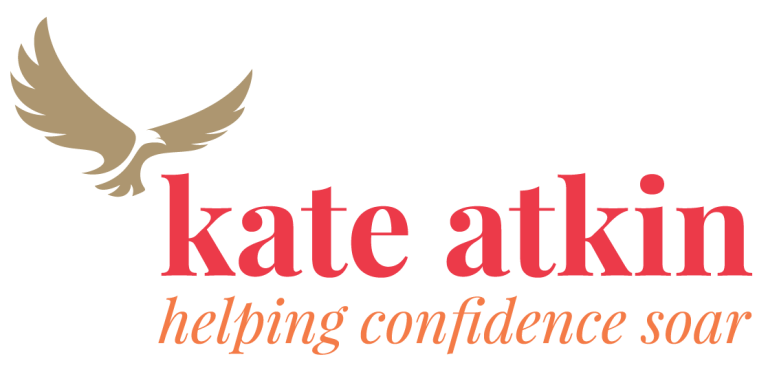It was a pleasure to speak to you all online and to discuss the imposter chatter with you. If there are any issues or questions you didn’t get the chance to raise, or which have been prompted by our discussions, please do feel free to contact me. You can reach me at kate@kateatkin.com or 07779 646976.
On this webpage you will find some extra information on the imposter phenomenon (as you now know, it really isn’t a syndrome) which is based on my own research and that of other experts. In addition, there are some other useful links, plus suggestions for TED talks and further reading.
You can download an abbreviated version of the slides here.
We are still at an early stage in understanding the impact of the Imposter Phenomenon and my interest is in understanding the most effective ways of managing those imposter feelings, in particular in the workplace and passing on this information to others. I am currently undertaking doctoral research on this topic. If you are interested in keeping up to date with my research findings and musings on the topic, do sign up to receive my occasional newsletter.
Here’s a link to the research on IP in the workplace by TotalJobs in 2019, in collaboration with yours truly and my PhD supervisor Dr Terri Simpkin: TotalJobs Survey, and the recent 2020 research to explore the impact of working from home and the lockdown during the current pandemic can be found here.
In addition, here’s an interesting blog on the importance of allyship at work . Being an ally could help reduce another person’s feelings of imposterism.
Personality Types
I am often asked about “types of people” who experience the phenomenon. As I mentioned during the presentation, it can affect anyone who feels as if they don’t belong, or when they look around they feel ‘other’.
So while there is no set “type”, there is some research which explores the links between the imposter phenomenon and personality types, specifically the Five Factor Model: extraversion, neuroticism, conscientiousness, agreeableness and openness to experience. Two factors report significant finding in research; IP has been negatively related to Extraversion (Chae et al., 1995) and a greater level of consistency has been found in the relationship with Neuroticism, where IP has been found to be positively associated (Ross et al., 2001, Bernard et al., 2002, Vergauwe et al., 2015). IP has also been found to be negatively associated to Conscientiousness (Chrisman, 1995, Chae et al., 1995, Bernard et al., 2002, Vergauwe et al., 2015), with ‘imposters’ low in two facets in particular: competence (Vergauwe et al., 2015) and self-discipline (Bernard et al., 2002).
Other Useful Links
Strength Questionnaires
https://www.viacharacter.org/www/Character-Strengths-Survey
https://www.gallupstrengthscenter.com/
https://www.strengthsprofile.com/
https://www.strengthscope.com/
TED Talks & YouTube Links
Amy Cuddy TED Talk on Body Language
Christine Porath TED Talk on Incivility
Susan Cain TED Talk on The Power of the Introvert
Viola Davis behind the scenes Oscar interview
Inga Beale on R4 Desert Island Discs
Other reading, books and references
What to say when you talk to Yourself by Shad Helmstetter
The Impostor Phenomenon by Dr Pauline Rose Clance
The Pursuit of Perfect by Tal Ben-Shahar
Inferior by Angela Saini
The Gift of Imperfection by Brene Brown
The Confident Manager by Kate Atkin
Quiet by Susan Cain
On the video tab of this website you’ll find a panel discussion on the imposter syndrome with Circle Co. which provides an interesting insight into the imposter at work (filmed prior to Covid 19). I also add blogs and podcasts to the site, so do take a look around.
Finally, if you would like to keep in touch, then please connect with me on LinkedIn, Twitter or sign up to receive my newsletter.
With best wishes.
Kate
#choosecourage
